![RODRIGO MATHEUS Antes do presente, 2024 [detalhe_detail]_3](https://fdag.com.br/app/uploads/2024/03/rodrigo-matheus-antes-do-presente-2024-detalhe-detail-3-375x260.png)
Rodrigo Matheus
Antes do Presente | Time Before Present
Mar 23 – May 18, 2024
Opening
Mar 23, 2 pm–6 pm
FDAG Barra Funda
Download
Time Before Present, Rodrigo Matheus’ first solo show with the gallery since 2018, opens on March 23rd at Fortes D’Aloia & Gabriel in São Paulo. The exhibition is an immersive installation where the artist weaves together scenes from an ambiguous time, between the remote past, the distant future and the present suspended between both. Composing the work with steel spikes and synthetic hair, Matheus investigates notions of beginning and end, from the telluric formation of the Earth to the contamination and degradation of the environment.
Through the production of a speculative archaeological site, Rodrigo Matheus twists the timeline that connects us to remote periods of representation, creating a panoramic tableau where different temporalities are superimposed and coexist. The show’s title references a time scale, employed in scientific disciplines for the dating of events taking place after the chemical alteration of the globe after nuclear experiments. Drawings and graphisms that cite cave paintings, archaic pictograms and modern art history negotiate their autonomy in transitive and saturated images.
The artist converts the exhibition space into a blend of prehistoric cavern and contemporary panorama. In an examination of human representative urges, Matheus includes in his pictorial vocabulary a drawing of a giraffe found in a cave in the Sahara, a horse head from the caves of Chauvet and negative handprints from Kalimantan-Borneo, dating back 45.000 years. The artist thus traces a critique of the tradition of archaeological plundering, reprocessing the practice as a motor for the creation of hybrid spaces.
Such conceptual configurations are a constant in the artist’s research, whose sculptures and installations investigate objectual production regimes and the ways that they are inscribed in fields of meaning, through reprocessing of consumer goods. Matheus unveils the power structures behind information, transforming visual presentation into a field in dispute, crossed by formal, symbolic and social vectors.
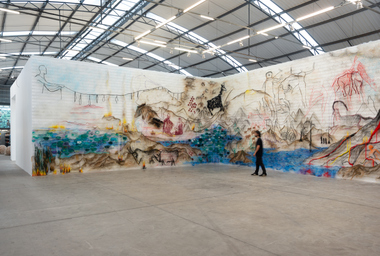
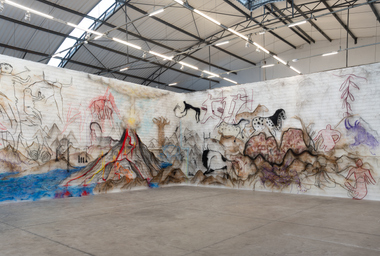
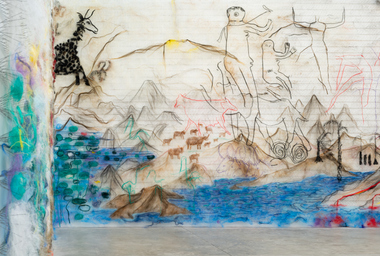
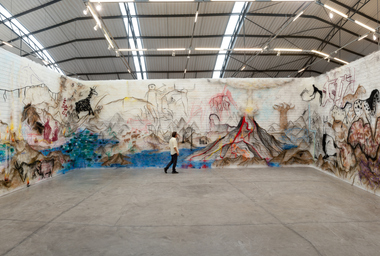
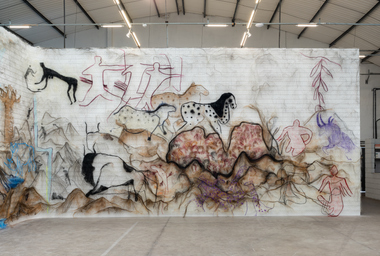
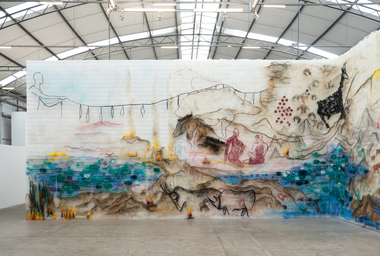
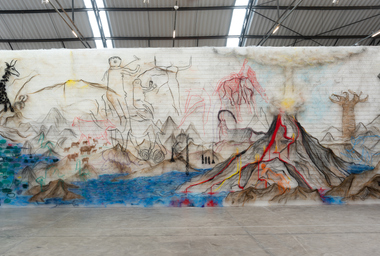
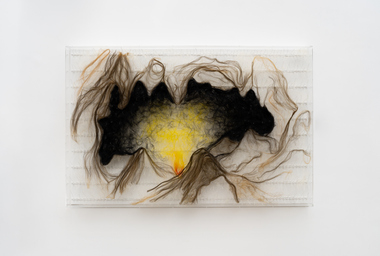
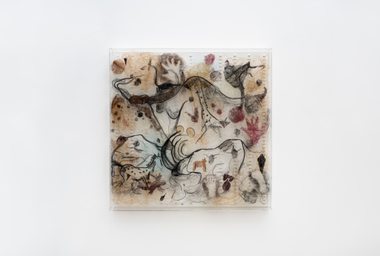
![RODRIGO MATHEUS Antes do presente, 2024 [detalhe_detail]_1](https://fdag.com.br/app/uploads/2024/03/rodrigo-matheus-antes-do-presente-2024-detalhe-detail-1-380x256.jpg)
![RODRIGO MATHEUS Antes do presente, 2024 [detalhe_detail]_3](https://fdag.com.br/app/uploads/2024/03/rodrigo-matheus-antes-do-presente-2024-detalhe-detail-3-380x256.png)
![RODRIGO MATHEUS Antes do presente, 2024 [detalhe_detail]_2](https://fdag.com.br/app/uploads/2024/03/rodrigo-matheus-antes-do-presente-2024-detalhe-detail-2-380x256.jpg)